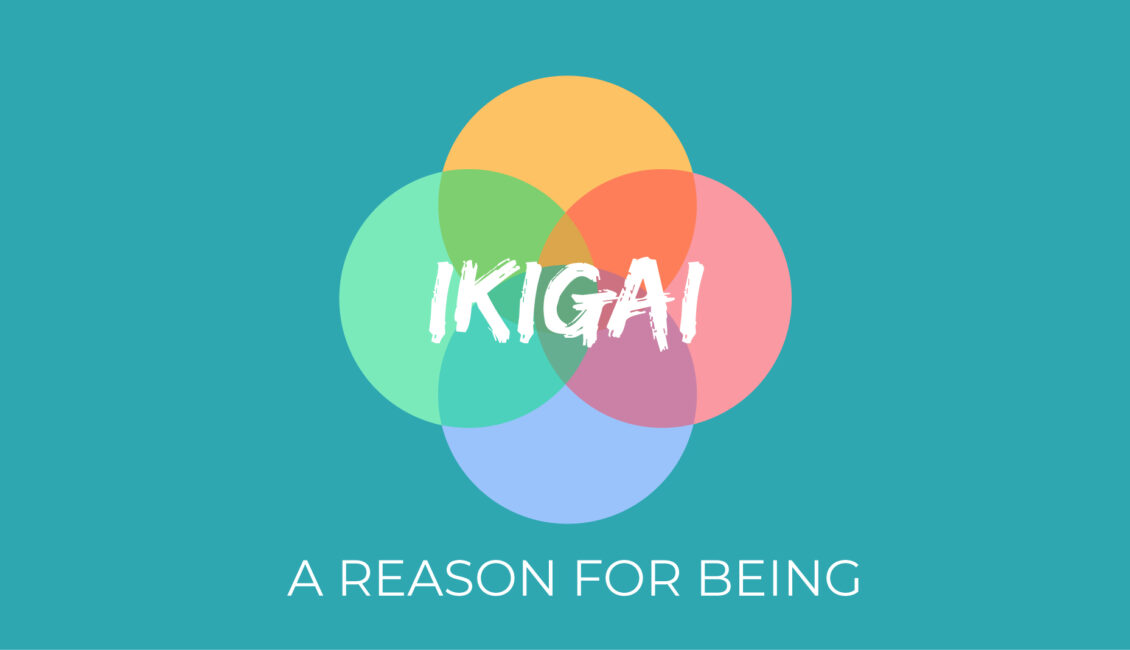
by Conor McCormick
What the hell is Ikigai? Since my editor Emma pitched the idea to me last month I’ve seen and heard nothing else. The old Baader-Meinhof phenomenon! The tagline of Hector Garcia Puigcervers book is “The Japanese secret to a long and happy life.” Excellent, who doesn’t want a long and happy life? In the book, they conducted 100 interviews in Ogimi, Okinawa to try and understand the longevity secrets of centenarian and super-centenarians.
So what is it? In essence it boils down to three components.
- Having a purpose is a vital component of longevity and happiness.
- If you want to live a long life, follow the advice of some of the oldest people in the world.
- To stay healthy throughout your life, healthier and happier.
It’s a fairly simple idea (and not too dissimilar from what we believe in the West) but there’s something novel about taking an idea from Eastern culture. Meditation is working pretty well right? It’s the idea of looking at how different cultures approach life. We just assume our cultures way of life is the right way.
Ikigai is a reason to wake up in the morning. The meaning of life we often chase. It shouldn’t come as a surprise that when we spend our days feeling connected to what is meaningful to us, we live more fully and when we lose the connection, we feel despair. This idea, that there’s a passion inside you that gives meaning to your days and will drive you until your very last breath. If we don’t know what this passion is, then it’s our mission to discover it.
The word itself can be broken down into two characters ‘Iki’ which means life, and ‘gai’ meaning value. Finding your Ikigai can be done by asking four simple questions.
- What are your strengths? Think of what you do better than everyone else.
- What does the world need? Imagine something you see that the world lacks.
- What are your passions? Picture the things that you could do all day without stopping.
- What can you earn a living doing? You have to make money from your craft, so how can you do that?
This search requires patience. Focus on simplicity and attention to detail. The main difference with Ikigai and our general understanding of “purpose,” is that it doesn’t have to be connected to your job. It make come from a hobby or relationship. The claim is that having this throughout your entire life, including retirement, helps you to live longer. This is a common theme we see, when people retire, they start to deteriorate and we wonder why?! If work was their purpose then this makes perfect sense. Research has shown that elderly Okinawans have much lower rates of dementia and heart disease as a result of their purpose.
Okinawa has long been examined by scientists due to their long life spans, fewer cases of cancer along with other age related diseases. This has been put down to eating a lot of fish, lower rate of smoking, active social lives and even their high consumption of carbohydrates! Ikigai is suggesting that it’s because they know their purpose in life, pursuing it and nurturing it every day. This is not a simple process. Or is it? Am I just over complicating something that IS very simple? This reminds me of the Chinese finger trap, the harder you try to pull, the more stuck your finger becomes.
Imagine you didn’t experience any pleasant or unpleasant emotions and could decide rationally what to pursue. Then what would you want to do with your life? When someone eats, sleeps, breathes, walks, works, lives with one purpose, she will usually achieve that purpose. The victors are the ones who are most patient, who are most rational, who have the most self-control. Patience means restraining one’s inclinations. There are seven emotions: joy, anger, anxiety, love, grief, fear, and hate, and if a man does not give way to these he can be called patient.
Do things for reasons. This is not the way most people run their lives. Most people’s daily lives are done out of custom, with no carefully evaluated and explicitly defined reasons for their actions. The way to start doing that is to ask, “What is my objective here?” Then, “What course of action makes me most likely to reach that objective?” Over-intelligent people spend more time being clever than being effective. Over-researching relatively minor things.
I take from this that we live with the pressure to do what we’re told to do, or see others doing or what we feel we should do, instead of what we want to do. Don’t give up the things you love. The happiest people are not the ones who achieve the most. They are the ones who spend more time in a state of flow. We should increase the time we spend on activities that bring us to this state of flow. Concentrating on one thing at a time may be the single most important factor in achieving flow. Do everything with a sense of calm, don’t be in a rush.
Worry as little as possible (why didn’t I think of that?!) Focus on enjoying life for what you have, instead of being afraid of what might go wrong. Smile. Have an open heart towards everybody you meet. Anxiety is fairly prevalent in todays society, as is loneliness. Loneliness has been shown to be as harmful as smoking 15 cigarettes a day. The harder part of this is treating it. How do I worry less? When the American Institue of Stress investigated premature aging they concluded that most health problems are caused by stress,
Lastly, it’s about keeping moving throughout your day. Not necessarily vigorous weight lifting but simple ways such as walks that maintain movement frequently. Radio Taiso, a Japanese radio show, has helped Okinawans exercise for years. Large groups of Japanese tune into the station and listen to directions on how to exercise each morning. Simple exercises like lifting your arms above your head and bringing them down again.
I will leave you with the 10 commandments of Ikigai.
- Stay active; don’t retire.
- Take it slow.
- Don’t fill your stomach.
- Surround yourself with good friends.
- Get in shape for your next birthday.
- Smile.
- Reconnect with nature.
- Give thanks.
- Live in the moment.
- Follow your ikigai.
